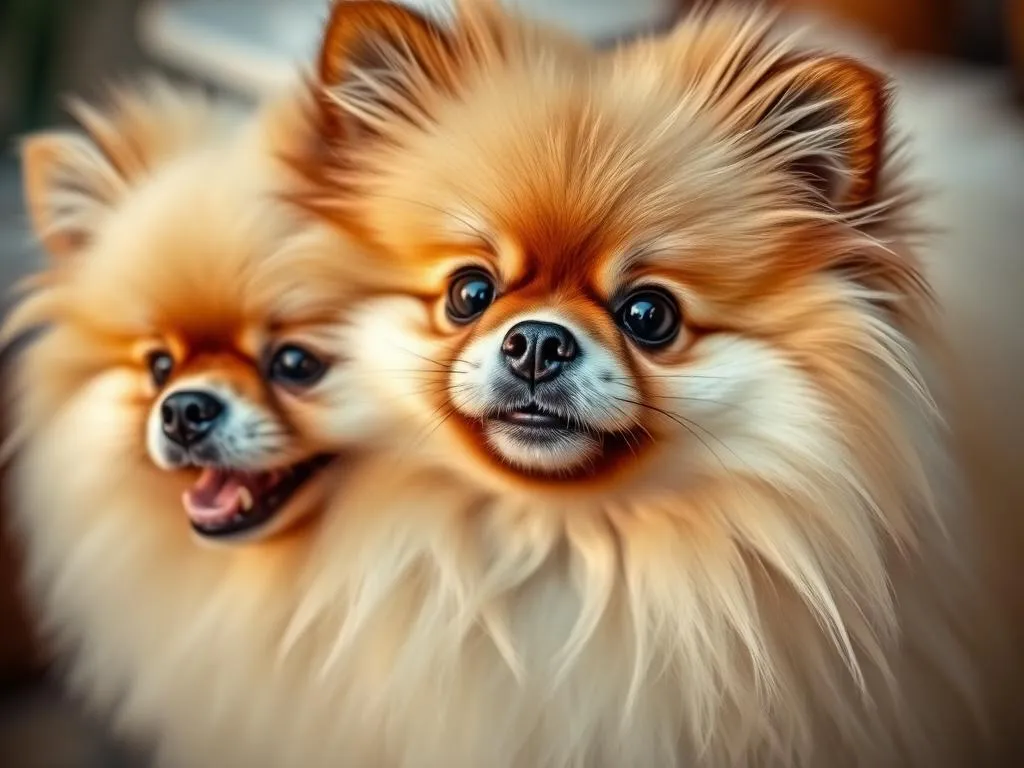
Pomeranians are a small, fluffy breed that has captured the hearts of many dog lovers around the globe. Known for their vibrant personalities and adorable looks, Pomeranians are often seen as playful companions. However, one question that frequently arises is, are Pomeranians smart?
Intelligence in dogs is an important trait that can influence their behavior, trainability, and relationships with their owners. In this article, we will delve into the intelligence of Pomeranians, examining their traits, training capabilities, and how they compare to other breeds.
Understanding Dog Intelligence
Definition of Dog Intelligence
Dog intelligence can be understood in several ways. Commonly, it is categorized into three main types:
- Adaptive intelligence: This refers to a dog’s ability to solve problems independently. For example, how well they can navigate their environment or learn from past experiences.
- Instinctive intelligence: This is linked to the breed’s specific traits and abilities. For instance, herding dogs have high instinctive intelligence related to their herding skills.
- Working intelligence: This relates to how well a dog can learn commands and perform tasks as instructed by their human companions.
When evaluating a breed’s intelligence, it’s vital to consider these characteristics, as they can significantly influence a dog’s ability to learn and adapt.
Measuring Dog Intelligence
There are various methods used to assess dog intelligence, from simple tests to more structured evaluations. One of the well-known rankings is Stanley Coren’s list, which categorizes dog breeds based on their intelligence, particularly focusing on working and obedience capabilities.
According to Coren, the top breeds can learn a new command in fewer than five repetitions and obey the first command given at least 95% of the time. While Pomeranians may not top this list, they certainly display unique intelligence traits that make them stand out.
Pomeranians: An Overview
Breed History
The Pomeranian originated from the larger Spitz breeds that were bred for various working purposes. Named after the Pomerania region in northern Europe, these dogs were initially used for herding and pulling sleds. Their miniature size emerged through selective breeding, allowing them to become popular as companion animals.
Pomeranians have always been known for their lively personalities and charm, making them beloved pets across different cultures.
Physical Characteristics
Pomeranians are small, typically weighing between 3 to 7 pounds, making them one of the most popular toy breeds. Their fluffy double coat comes in various colors, from orange and cream to sable and blue.
In terms of health, Pomeranians generally live between 12 to 16 years, but they can be prone to certain health issues such as dental problems and luxating patellas. Regular vet visits and proper care can help maintain their health and well-being.
Intelligence Traits of Pomeranians
Problem-Solving Skills
One of the most notable traits of Pomeranians is their impressive problem-solving skills. Many owners report amusing anecdotes of their Pomeranians figuring out how to open doors or retrieve toys that are slightly out of reach. For instance, a Pomeranian named Bella became famous on social media for her ability to navigate a complex maze to find treats.
Such stories highlight the breed’s ability to think critically and adapt to challenges in their environment, characteristics that are often associated with higher intelligence.
Trainability
Pomeranians are known for their eagerness to learn, which is a significant aspect of their intelligence. They respond well to training, particularly when positive reinforcement techniques are used. This breed thrives on praise and treats, making training sessions enjoyable for both the dog and the owner.
When compared to other small breeds, such as Dachshunds or Chihuahuas, Pomeranians often exhibit a higher willingness to engage in training activities. This can be attributed to their natural curiosity and playful nature.
Social Intelligence
Social intelligence is another area where Pomeranians excel. These dogs have a keen ability to read human emotions and respond accordingly. They are known for their affectionate nature and often form strong bonds with their owners.
For example, many Pomeranian owners report their dogs showing empathy when they sense their owners are upset or unwell. Such behaviors indicate a level of social intelligence that is often seen in more trainable breeds.
Training Pomeranians: Tips and Techniques
Basic Training Strategies
When it comes to training Pomeranians, employing positive reinforcement strategies is crucial. Here are some effective methods:
- Use treats: Reward your Pomeranian with small treats for following commands.
- Clicker training: This technique helps in marking desired behaviors instantly, making it clear for the dog what they did right.
- Consistency: Be consistent with commands and rules to help your Pomeranian understand what you expect.
Patience is key when training a Pomeranian. Their spirited nature may sometimes lead to stubbornness, so maintaining a calm and encouraging demeanor is essential.
Advanced Training Opportunities
Once your Pomeranian has mastered basic commands, consider introducing advanced training opportunities. Activities such as agility training, rally obedience, and even trick training can significantly enhance their cognitive abilities.
Advanced training can provide mental stimulation that is essential for keeping a Pomeranian engaged and preventing behavioral issues. These activities also strengthen the bond between dog and owner, making training sessions enjoyable.
Common Challenges
Like any breed, Pomeranians can face specific behavioral challenges. Issues such as separation anxiety, excessive barking, and stubbornness can arise. Understanding that these behaviors can stem from their intelligence and need for stimulation can help in addressing them effectively.
To combat these challenges:
- Provide ample exercise: Regular walks and playtime help burn off excess energy.
- Engage in mental games: Puzzle toys and interactive games can stimulate their minds.
- Seek professional help: If behavioral issues persist, consider consulting a professional trainer for guidance.
Pomeranians vs. Other Breeds
Comparative Intelligence
When comparing Pomeranians to other small breeds, it’s clear they hold their own in terms of intelligence. Dachshunds and Chihuahuas, for instance, have their unique traits, but Pomeranians often demonstrate superior problem-solving skills and trainability.
Stanley Coren’s intelligence rankings show that while Pomeranians may not be at the very top, they consistently rank favorably among toy breeds, showcasing their capabilities.
Unique Qualities of Pomeranians
What sets Pomeranians apart is their distinctive personality traits. They are known for their lively and outgoing nature, which often translates into a willingness to learn and engage. Their ability to connect emotionally with their owners adds another layer to their intelligence.
Personal anecdotes from owners often reflect these unique qualities. For example, one owner shared how their Pomeranian learned to fetch specific toys by name, showcasing not only intelligence but also a strong connection with their human.
The Role of Environment and Socialization
Importance of Early Socialization
Early socialization plays a critical role in shaping a Pomeranian’s intelligence and behavior. Exposing them to various environments, people, and other animals during their formative months can help them develop confidence and adaptability.
Engaging in puppy classes or playdates can significantly enhance their social skills, leading to a well-adjusted adult dog. This socialization period helps prevent behavioral issues that can arise from fear or anxiety in new situations.
Mental Stimulation and Enrichment
Pomeranians thrive on mental challenges and enrichment activities. Activities that stimulate their minds, such as puzzle toys, interactive games, and obedience training, can help maintain their intelligence and prevent boredom.
Regular exercise is equally important. A daily routine that includes walks, playtime, and mental challenges ensures your Pomeranian remains healthy and stimulated.
Conclusion
In summary, Pomeranians are indeed a smart breed, exhibiting various forms of intelligence, including problem-solving skills, trainability, and social intelligence. Their unique personality traits, combined with their eagerness to learn, make them not only delightful companions but also intelligent pets.
For potential Pomeranian owners, understanding their intelligence can offer valuable insights into training and care. With the right approach, your Pomeranian can thrive, showcasing the intelligence that makes them such a cherished breed. Whether you are looking for a playful companion or a dog that can learn fascinating tricks, a Pomeranian may just be the perfect match for you.
Engaging with this intelligent breed can lead to a rewarding partnership filled with love, laughter, and learning.









